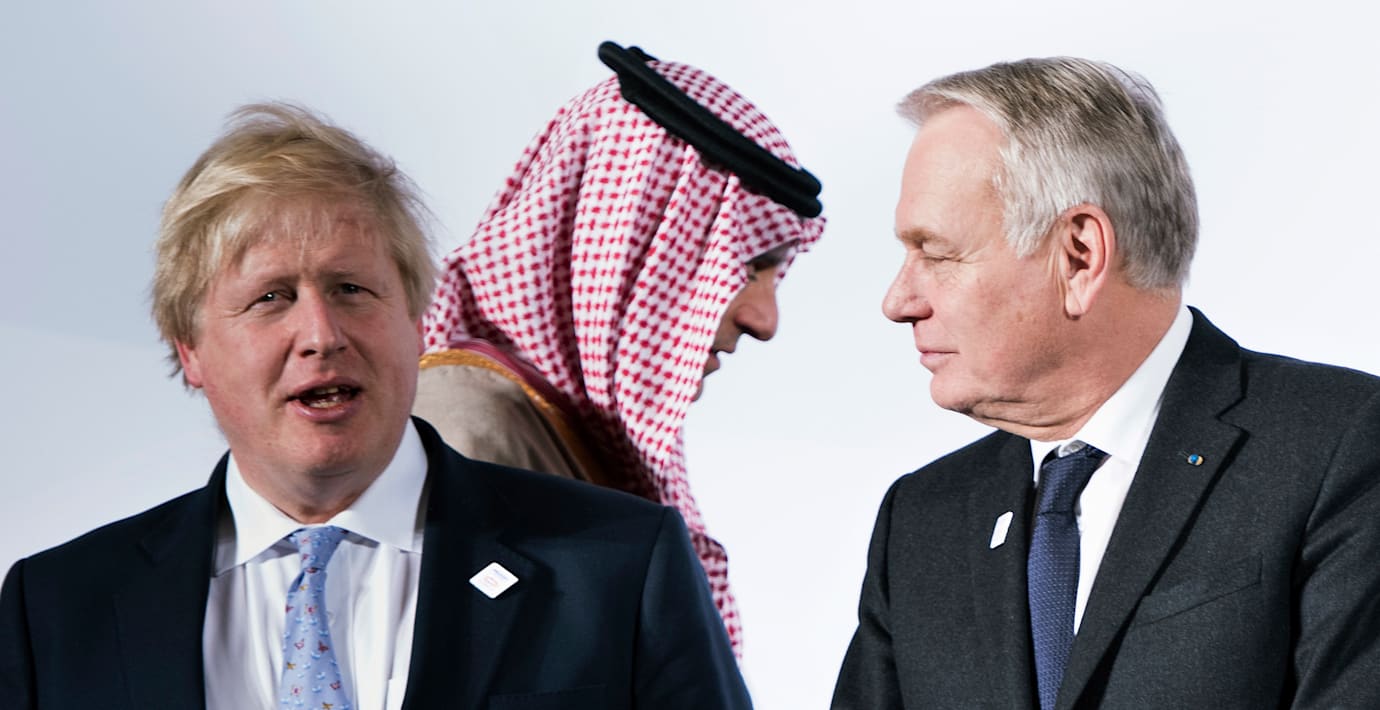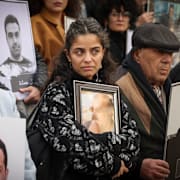
”Världen borde skämmas – hur länge kan vi uthärda?”
FN har en moralisk skyldighet att upprätthålla förbudet mot kemiska vapen, menar Frankrikes utrikesminister Jean-Marc Ayrault och hans brittiske motsvarighet Boris Johnson. I en debattartikel i brittiska The Guardian skriver de om attacken i syriska Khan Sheikhun den 4 april. ”Världen borde skämmas. Hur länge kan vi uthärda detta?”
Ministrarna skriver att det finns många frågetecken kring de löften som Syriens diktator Bashar al-Assad tidigare gett om att göra sig av med kemvapen, och kräver en undersökning. Enligt ministrarna har också Ryssland och Iran konsekvent försökt mörklägga regimens agerande.
bakgrund
Kemgasattacken i Khan Shaykhun
Wikipedia (en)
The Khan Shaykhun chemical attack took place on 4 April 2017 on the town of Khan Shaykhun in the Idlib Governorate of Syria. At the time of the attack, the town was under the control of Tahrir al-Sham, formerly known as the al-Nusra Front. The town was struck by a heavy airstrike by government forces followed by massive civilian chemical poisoning. The release of the toxic gas, likely sarin, killed at least 74 people and injured more than 557, according to the Idlib health authority. The attack was the deadliest use of chemical weapons in the Syrian civil war since the Ghouta chemical attack in 2013.
The governments of the United States, United Kingdom, Turkey and Israel attributed the attack to the forces of Syrian President Bashar Assad. The Assad government denied that it used any chemical weapons in the air strike. The Russian Defense Ministry said that Syrian aircraft bombed a warehouse belonging to rebels which "may have contained a rebel chemical arms stockpile".
In response, on 7 April, the United States launched 59 cruise missiles at Shayrat Air Base, which U.S. intelligence believed was the source of the attack.
Omni är politiskt obundna och oberoende. Vi strävar efter att ge fler perspektiv på nyheterna. Har du frågor eller synpunkter kring vår rapportering? Kontakta redaktionen



